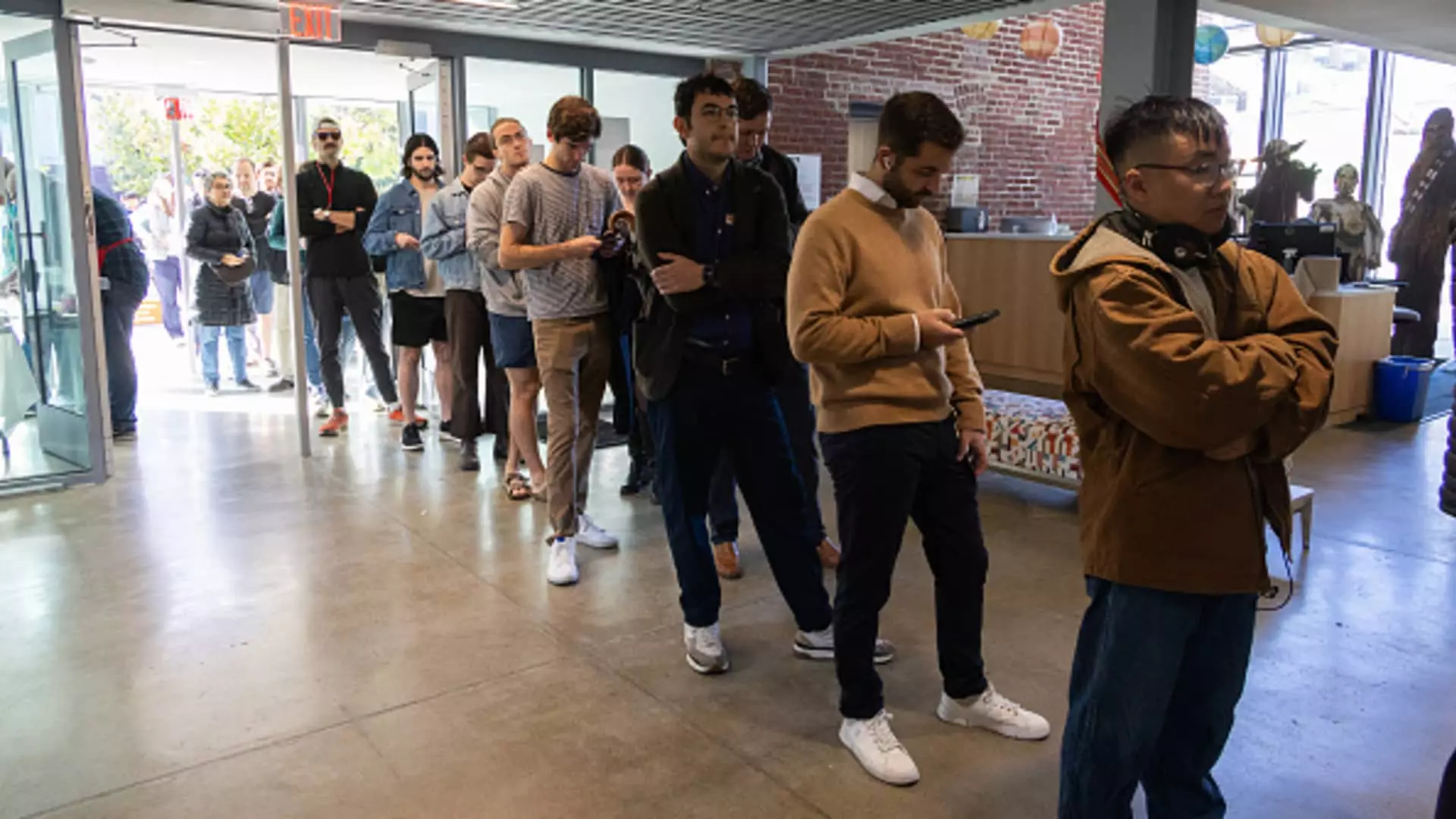The outcome of the 2024 election illuminated stark divisions among the American electorate, with gender differences emerging as a prominent factor influencing voter behavior. The election served as a reflection of the evolving challenges and aspirations faced by men and women in today’s society, particularly concerning economic prospects, educational attainment, and societal roles.
As the election approached, it became increasingly evident that men and women were gravitating toward different candidates based on their unique concerns and perspectives. According to exit polls from NBC News, women demonstrated a striking preference for Vice President Kamala Harris, supporting her by an 8-point margin, whereas men largely rallied behind President-elect Donald Trump, showcasing a 13-point towards his favor. These statistics not only underscore the polarization in political preferences but also suggest that gender may serve as a significant prism through which Americans view issues of economic policy and national direction.
The primary drivers of this gender divide seem to revolve around differing economic sentiments. For many women, Harris’s policies resonated, perhaps due to a comprehensive understanding of the financial struggles faced by families. Conversely, Trump’s appeal among men can be traced back to his emphasis on economic revitalization—a topic that found traction with various demographic groups, including Black and Hispanic voters. Such support suggests an underlying anxiety about financial stability, particularly in an economy grappling with inflation and uncertainty.
Male voters, especially within the demographic aged 25 to 54, have increasingly expressed feelings of disillusionment regarding their economic prospects. Julia Pollak, chief economist at ZipRecruiter, points to a growing sentiment among men that there are limited pathways for economic mobility. This sentiment aligns with broader labor market trends that indicate a troubling decline of participation among non-college-educated men. The Pew Research Center highlights this decline, noting a worrying trend where young men are abandoning traditional job markets that have been eroded by globalization and technological advancements.
The struggle for identity and purpose amidst economic changes has led many young men to feel marginalized. Education statistics reinforce this narrative: since 1995, women aged 25 to 34 have surged ahead in higher education attainment compared to their male peers. This educational gap can signal broader socio-economic shifts that may contribute to the feeling of abandonment within this group, further exacerbating challenges associated with employment and skill development.
Adding to the complexity of this issue is the rise of the NEET—those “Not in Employment, Education, or Training.” This cohort, predominantly male, reflects a societal challenge exacerbated by changing job markets and dwindling opportunities in traditional sectors. Richard Fry from Pew Research emphasizes that this demographic suffers disproportionately from the adverse effects of economic transition, with many feeling disincentivized to seek employment.
This alarming trend suggests not just economic ramifications but also broader social implications regarding the development of a generation of young men who feel disconnected from productive roles in society. When combined with external pressures and limited vocational avenues, it becomes clear that this group’s discontent largely feeds into political divides, as they gravitate toward leaders promising remedy for their perceived grievances.
Conversely, women have made significant strides in education and workforce participation, reshaping traditional roles and priorities. Many women are now prioritizing career advancement over family life, seeking policies that support work-life balance, such as universal childcare and reproductive rights. Yet, despite increased political engagement, reproductive rights did not appear to be the dominant issue driving female voters in the most recent election—illustrating a potentially complex relationship between political activism and everyday financial concerns.
Ali Bustamante from the Roosevelt Institute posits that these shifting priorities reflect a broader evolution in societal norms, where women no longer feel bound to traditional roles. However, these changes do not diminish the importance of other critical issues such as paid leave, affordable housing, and equal pay, which remain salient to many women and families navigating the current economic landscape.
While the results of the 2024 election highlight stark gender divides, they also reflect a significant moment for understanding the underlying issues across both genders. As experts caution, acknowledging the distinct concerns of men, especially regarding economic disenfranchisement, will be crucial in crafting policies that unite rather than divide. Moreover, recognizing women’s advancements and their calls for policy change will also be essential in fostering an inclusive dialogue that resonates across the political spectrum.
Ultimately, the challenges faced by men and women today, while unique, invite a necessary conversation about inclusivity and the shared goal of ensuring economic stability and opportunity for all. The road ahead lies not in deepening divisions but rather in understanding and addressing the multifaceted factors influencing voter preferences and aspirations.

